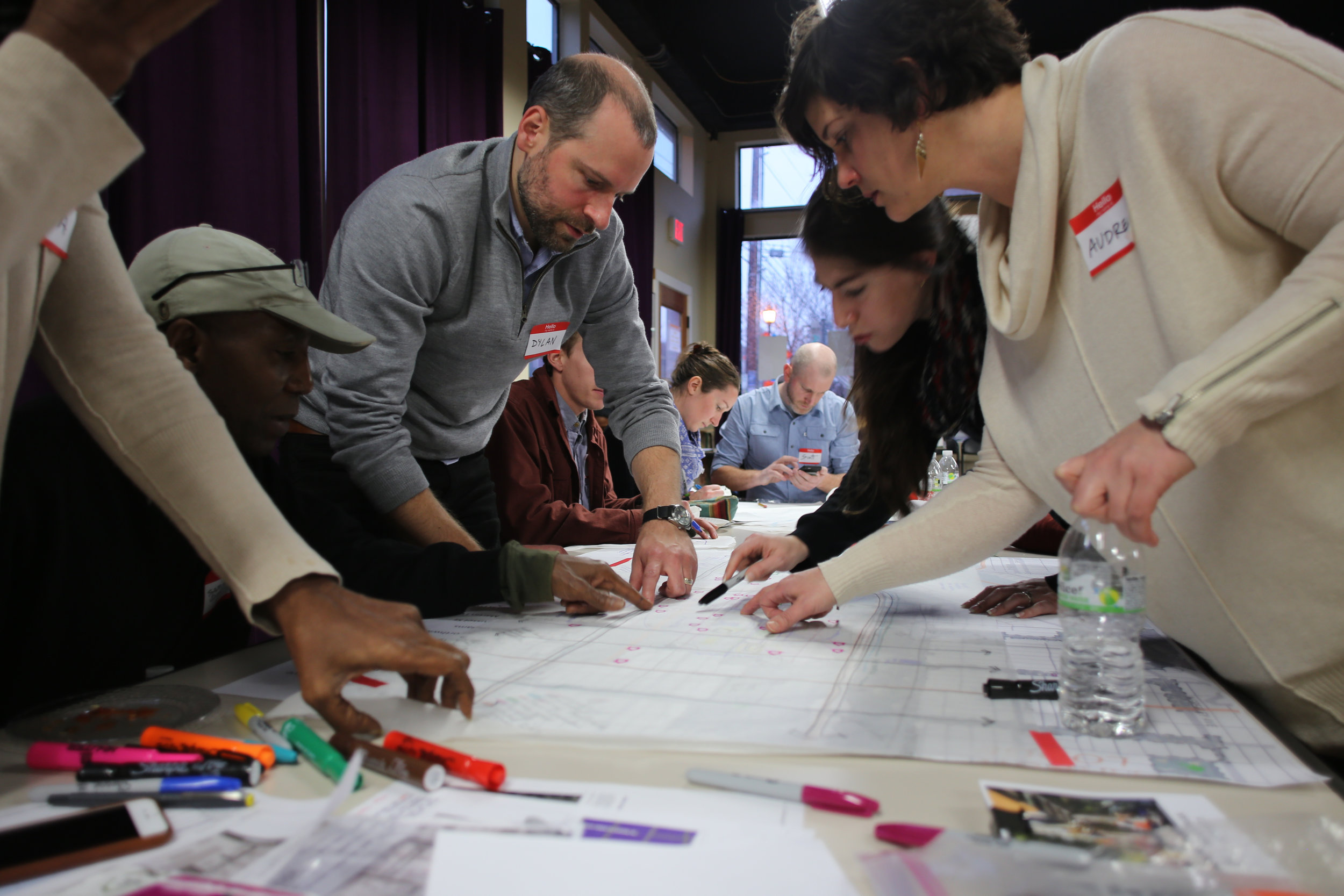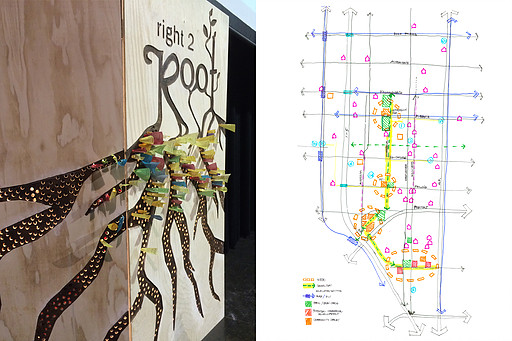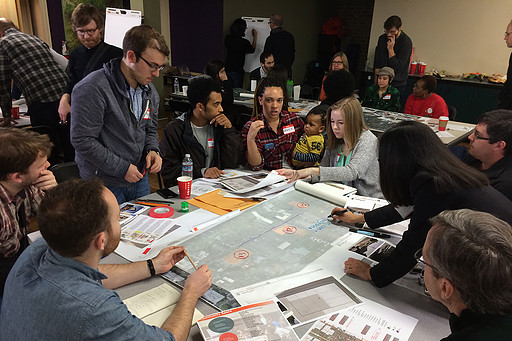Right 2 Root
Project Overview
We recently completed the “Right 2 Root” visioning study for RADIX Consulting Group LLC, for a Fall 2016 release. Using EcoDistrict guidelines, our work focused on how publicly owned land in N/NE Portland could be re-developed in a pro-active way to mitigate gentrification and displacement in the African American community. In focus groups and a community workshop, using an array of engagement tools, attendees were able to voice their hopes, concerns, and ideas for meaningful reinvestment in the area that would specifically benefit their community. We then recruited a group of designers that could bring these visions to life. The work culminated in December 2015 with a professional charrette that brought together representatives from the community with over thirty Portland based architecture, urban design and landscape designers. Working in four groups with members of the community, the participants generated design visions for how potential sites could be developed for the benefit of the African American community. The design proposals range from home ownership strategies, to new urban plazas and street corridors with community centers, commercial space and business incubators. The master plan weaves these visions together by creating a new pedestrian friendly corridor which emphasizes community interaction and links to existing neighborhood assets. CPID students continued to support Right 2 Root's efforts in the spring of 2016 through the design and creation of a portable pavilion for Radix to host conversations relevant to the project goals.
Context (Excerpt from Right 2 Root report)
It was in Portland, Oregon, in 1968 that the American civil rights leader Whitney Young spoke before a room full of designers at the national convention for the American Institute of Architects and challenged a profession “known for its thunderous silence” and “complete irrelevance” in regards to social change. This critique is widely considered the call to action of the modern public interest design movement. While great efforts have been made within the architecture community since, design is still an extremely powerful tool but all too often is used in service of the desires of a very few, often at the expense of many.
When Cat Goughnour approached us about collaborating on an effort to address the rapid displacement of African Americans from historically black neighborhoods in Portland, we listened to her goals for the Right 2 Root project with open ears. The rapid gentrification and housing shortage that has been taking place in Portland in the last decade would not escape the notice of even the most passive onlooker. Things have been changing dramatically in a dizzyingly short period of time in North Portland. While the changes have resulted in the types of breweries, boutique shops, and restaurants that Portland is famous for, the changes have not benefitted everyone. Long-time residents are being priced out of their own communities or left feeling unwelcome in the neighborhood if they choose to stay. With Salazar Architects’ background in progressive affordable housing and the Center for Public Interest Design’s (CPID) mission to use the power of design to address pressing social, economic, and environmental issues with underserved communities, we felt strongly that there was an important role that designers could play in this matter. When Cat made clear her goals for the project in her distinctively thoughtful and articulate way, we knew that we had found a community partner that would be able to turn our research and design into transformative action.
Beyond the professionals in the room who participated in the charrette, we were particularly glad to have the CPID Student Fellows involved throughout the process, as they are actively seeking to push the design profession forward on public interest design issues. These future architects and design professionals are determined to not be part of a profession “known for their thunderous silence” on social issues, but for the ability and willingness to use their design skills for the public good.
Location
Portland, OR, United States
Partners
Client: Radix Consulting Group Collaborator: Salazar Architects
Contributors: ZGF, PLACE, Hacker Architects, GBD, Ankrom Moisan, Holst Architecture, Resolve Architecture & Planning, SERA, Gollah Planning & Consulting, SRG, Orange Splot LLC, Vallaster Corl Architects PC, Rachel Mullon, Rosanne Lynch, Isaac Adams



